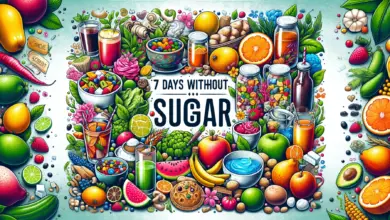What to Eat to Fight Acne

Acne is a common skin condition that affects people of all ages. While there are various factors that contribute to acne, including hormonal imbalances and genetics, diet plays a significant role in its development and severity. In this article, we will explore the foods that can help fight acne and promote clear, healthy skin.
The Impact of Diet on Acne
Research has shown that certain foods can trigger acne flare-ups, while others can help reduce inflammation and promote skin health. By making simple changes to your diet, you can potentially improve your skin and reduce the frequency and severity of acne breakouts.
1. Antioxidant-Rich Foods
Foods rich in antioxidants can help fight inflammation and protect the skin from damage caused by free radicals. Include plenty of colorful fruits and vegetables in your diet, such as berries, spinach, kale, and bell peppers.
Additionally, green tea is a great source of antioxidants and can be enjoyed as a beverage or used in skincare products to help soothe and heal acne-prone skin.
2. Omega-3 Fatty Acids
Omega-3 fatty acids have anti-inflammatory properties and can help reduce acne-related inflammation. Include fatty fish like salmon, sardines, and mackerel in your diet, as well as plant-based sources such as chia seeds, flaxseeds, and walnuts.
Supplementing with fish oil capsules can also provide a concentrated dose of omega-3 fatty acids for those who struggle to incorporate enough of these foods into their diet.
3. Probiotics
Probiotics are beneficial bacteria that can help balance the gut microbiome and improve digestion. A healthy gut is essential for clear skin, as imbalances in gut bacteria can contribute to acne. Include probiotic-rich foods like yogurt, kefir, sauerkraut, and kimchi in your diet.
If you prefer not to consume dairy, there are also non-dairy options available, such as coconut milk yogurt or fermented vegetables.
4. Zinc
Zinc is an essential mineral that plays a crucial role in skin health. It helps regulate oil production, reduce inflammation, and promote wound healing. Include zinc-rich foods like oysters, beef, pumpkin seeds, and chickpeas in your diet.
If you struggle to meet your daily zinc requirements through diet alone, consider taking a zinc supplement after consulting with a healthcare professional.
5. Vitamin A
Vitamin A is important for maintaining healthy skin and preventing clogged pores. Include foods rich in beta-carotene, such as sweet potatoes, carrots, and leafy greens, as they can be converted into vitamin A in the body.
It’s worth noting that excessive intake of vitamin A from supplements can be harmful, so it’s best to obtain it through a balanced diet.
6. Low-Glycemic Foods
Foods with a high glycemic index can cause a spike in blood sugar levels, leading to increased insulin production and inflammation. Opt for low-glycemic foods like whole grains, legumes, and non-starchy vegetables to help stabilize blood sugar levels and reduce the risk of acne breakouts.
Avoid or limit processed foods, sugary snacks, and beverages with added sugars, as they tend to have a high glycemic index.
Conclusion
While diet alone may not completely eliminate acne, incorporating these acne-fighting foods into your daily routine can contribute to clearer, healthier skin. Remember, everyone’s skin is unique, so it may take time and experimentation to find the right dietary approach that works best for you. Additionally, maintaining a consistent skincare routine and seeking professional advice from a dermatologist can also help in managing acne.
By making conscious choices about what we eat, we can support our skin’s health and overall well-being.




